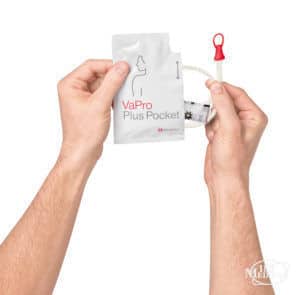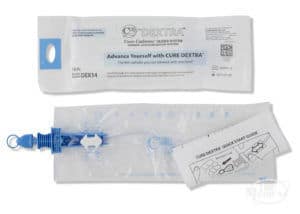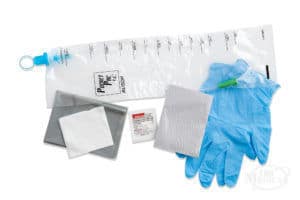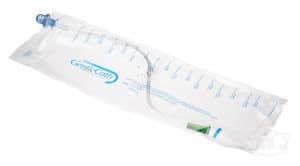
Whether you’re living with an illness or disability or you’re able-bodied, natural disasters can impact us all. As many of us may already know, we are often at the mercy of hurricanes, floods, wildfires, winter storms, earthquakes, and more. It’s important to formulate a plan and prepare for any event before it happens, which is why I’ve prepared some tips regarding disaster preparation for people with disabilities.
I know how hard it is for anyone to go through such catastrophic times. However, I must emphasize just how much more stressful, frightening, and devastating it can be to a person who is permanently disabled. This is even more true for people with disabilities who rely on electricity to run medical equipment, such as electric lifts, dialysis machines, and breathing machines.
The Importance of Disaster Preparation for People with Disabilities
Recently, my family and millions of other people in Texas and other parts of the South were struck by a vicious winter storm. This incident has left many in our state without power. Plus, many homes, including mine, were damaged due to pipes freezing and bursting.
Of course, this all happened in the middle of an ongoing pandemic. I had to explain to my house insurance company that I have a disability and am high-risk. Therefore, I couldn’t simply uproot myself and my family to stay in a hotel for long periods of time. I have to stay at home to work. My two sons are also completing schoolwork online at home. I have many items and supplies I need to live and function because of my disability. I take a lot of medication, and I require equipment to do basic things like showering and using the bathroom. Also, even the mattress on my bed is special because it helps prevent my skin from developing pressure sores.
When disasters like this strike so unexpectedly, it’s important to be as prepared as possible. Of course, some things cannot be prevented. That means we should do our part to make sure we’re as ready as possible for anything that comes our way.
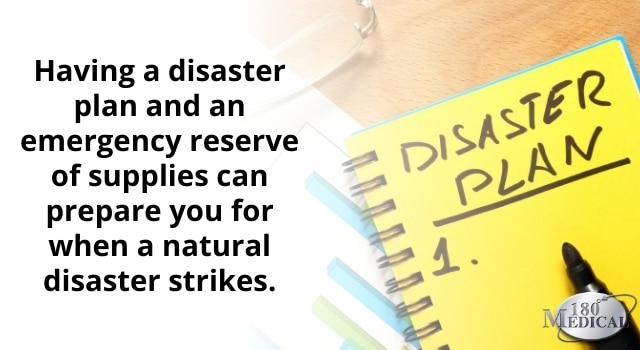
Tips for Disaster Preparation for People with Disabilities
As you begin your preparations, think about designating a specific area of your home as your “emergency” area. You can store all the items you need in bags or boxes. Make it easy for you or someone you trust, like a caregiver, to get to quickly in case you need to leave your home.
For the equipment or supplies you regularly use to accomplish daily tasks or perform self-care, you can’t necessarily store those items in case of an emergency. Instead, it may be a good idea to keep a list of those items.
Items to Keep on Hand in Case of Emergency
This may not be a comprehensive list of items, depending on your individual needs. However, this should be a great place to start.
Cash for Emergencies
After Hurricane Harvey, I learned to keep a separate account at my bank for emergencies only. That way, if I ever need to leave my home again due to a natural disaster or emergency, that money will help pay for lodging and essentials for me and my children, including any special accommodations for me as a person in a wheelchair.
Whatever you can put away each month to add to your savings, do it! Whether it’s $5 or $100, just set whatever you can afford aside because you will need it if you have to leave your home due to an emergency or an evacuation.
For more information about saving money on a fixed income, check out my tips for creating a budget when living with a disability.
Identification and Important Documents
In case of an emergency, you’ll want all your important documentation and identification handy. For example, this may include a driver’s license, banking information, home insurance information, health insurance cards, passport, and other important documents.
I’ve heard of people making copies of important papers and putting them in an organized 3-ring binder in plastic covers to keep them safe. An easy and cheap method would be to put them in a zippered sealing plastic bag to keep those items weatherproofed.
Water
Every time you shop for groceries, grab a gallon of water too. Keep those gallons stored for emergency situations, but be sure and use them before their expiration date.
On the other hand, if you want to cut back on your plastic usage, you might instead consider using a water filter at your home.
First Aid Kit
When it comes to disaster preparation for people with disabilities, we know our first aid kits will include much more than bandages and antibiotic ointment.
You may want to stock your first aid kit with masks, hand sanitizer, alcohol or another antiseptic, tape, dressings and gauze, gloves, and an oral thermometer. Also, you might check out the Red Cross’s first aid kit recommendations.

In addition to that, make a list of all the supplies and medications you need regularly. It would be impossible to cover everyone’s wide range of needs, but here’s a list of some examples of things people may need to be able to function each day:
- Breathing machine or nebulizer
- Prescription or over-the-counter medication
- Medical supplies, such as catheters or incontinence supplies
- Adaptive devices like grabbers, transfer assisting tools, shower chairs, etc.
- Feeding devices
If you have any extra supplies, consider storing those with your emergency pack.
Also, don’t forget to request refills of any prescription medication on time and never delay getting them. I can attest to this firsthand because when Hurricane Harvey hit, I was out of my medication, and all local pharmacies were closed.
Catheter Supplies
I cannot emphasize this one enough. If you depend on catheter supplies to drain your bladder, keep enough for emergencies. I’ve had to learn this the hard way by being in multiple situations, often as simple as just going out of town, then realizing I don’t have enough catheters to get me through my trip.
So I recommend keeping your delivery orders up to date and on schedule. The nice thing about ordering from 180 Medical is that they can put you on an automatic refill schedule according to your doctor’s prescription. That way, you never have to worry about running low.
Contact 180 Medical to get help finding the right catheter for you and start your first order.
You might also consider keeping a bottle of hand sanitizer or hand wipes. This is especially true if you’re somewhere without clean water or soap.
What Types of Catheters Are Best For Emergency Situations?
I personally like to use closed system catheters with insertion kits. These are sterile catheters with included supplies such as antiseptic wipes or swabs, gloves, and an underpad or drape. These supplies help make the process of catheterization touch-free, which may help reduce the risk of infection.
This is much easier on you if you have to leave your home and stay at a hotel, shelter, or another place away from your own bathroom. I like using the catheter kits even when I can’t find a wheelchair-accessible bathroom.
Because closed system catheters come with their own pre-attached collection bags, you can cath anywhere you have privacy: your car, a closet, or another room where you can be alone. Then all you have to do is throw it into its included disposal bag and be done with it. These catheters are just that easy.
Here are a few examples of closed system catheters:
Masks and Filters
From the pandemic alone, we have learned that masks are a part of keeping ourselves safe.
However, if you live in an area prone to wildfires, you need masks and filters to protect yourself from inhaling smoke or unhealthy air particles. You may want to keep a stock of N95 masks on hand. Some people also prepare by buying additional air filters for their homes.
Solar-Powered Radio
This is a great item to have on hand when you have no power to be able to turn on the tv and watch the news. You may find one with a USB port to keep your phones and other devices charged too. The one I bought also has a flashlight with three lamp strengths: a high beam, fluorescent, and a spotlight.
Extra Batteries
The one thing I will always make sure I have in my emergency pack is a pack of batteries. Many battery-powered devices, such as flashlights, use AA and AAA batteries, so pick some up to stock your emergency reserve.
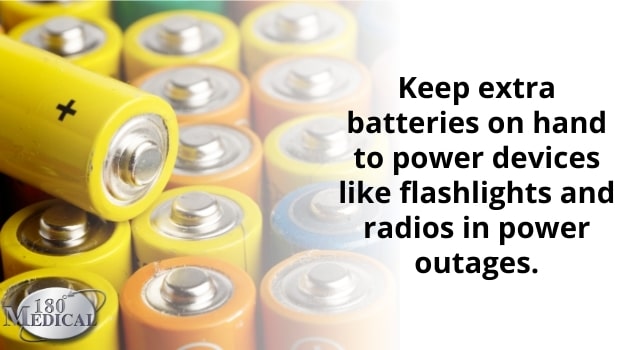
Full Tank of Gas
If you have a car, it might be a good idea to ensure its gas tank stays full.
Personally, I always like to keep the gas tank of my modified van filled up now. This way, I don’t have to worry that I won’t have enough gas to get to a safe place in an emergency.
Also, I recommend keeping an empty clean gas container in your trunk.
Extra Clothing
While I learned to keep extra clothes for hot weather during summer hurricanes, I also found from the recent winter storm that I also need to make sure my kids and I have winter coats, gloves, and boots.
Heating or Cooling Devices
Additionally, one thing to consider is that those of us with spinal cord injuries can sometimes have difficulty regulating body temperature. Therefore, you may want to keep a fan or a space heater. For me, this is worth the investment. These would, of course, have to be powered by a generator in situations where your power is out.
Hot Water Bottles
When your power goes out due to an ice storm, you may want to have a couple of hot water bottles to keep you warm. These are ideal if you have a gas stovetop, so you can still boil water to fill your bottles.
Also, once you’ve got your hot water bottles situated in bed or wherever you’re sitting, layer on enough blankets to keep yourself well-insulated from the cold.
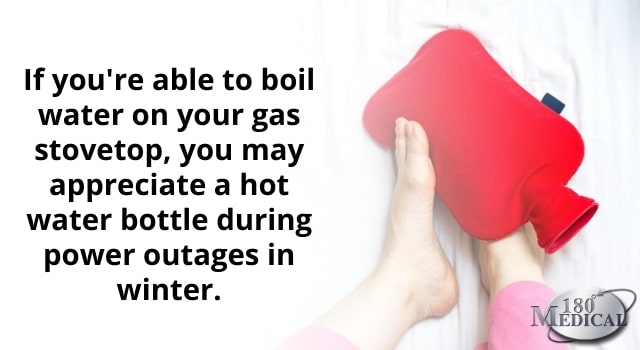
Stored Food
This may be a tricky one if your home loses power. This means you may be unable to use your usual cooking tools, such as an electric stove or microwave oven.
You may want to stock up on dry goods, such as crackers, cereal bars, canned fruits, soups, soda, and other non-perishable items. Peanut butter is a good, shelf-stable, high-calorie food to keep handy (as long as no one in your household has a peanut allergy).
Camping Stove
If you want to and are able to spend a little extra, you may consider adding a camping stove to your list for disaster preparation for people with disabilities.
Camping stoves typically work on propane gas, so you would need to store propane gas in a safe area. This is primarily helpful if you lose power.
Cooler
If you or someone else can get ice from a gas station or grocery store nearby, a cooler will come in handy when your refrigerator isn’t working. You can store your milk and other perishable items inside a cooler to keep them from spoiling.
Generator
Before facing power outages due to winter storms and hurricanes, I never thought I needed a power generator for my home. Now, I will make sure I have one.
You may not need a large or very expensive one. You want to make sure it can provide enough power so you can use appliances or necessary electrical adaptive equipment. For example, you may need a generator to charge your power wheelchair like me.
Keep Your Phone Charged and Have Emergency Numbers Ready
I’d suggest keeping your phone charged at all times, especially when you know bad weather is moving in.
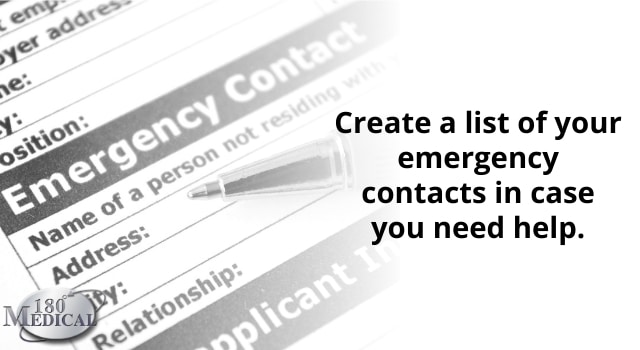
Along with that, keep a list of emergency phone numbers. This is an especially important part of disaster preparation for people with disabilities. You don’t want to be alone at home during an emergency without knowing how to contact your family, friends, a caregiver, or another emergency contact who can come to your aid as soon as possible.
In an emergency, it may also be a good idea to keep a quick list of the local shelters in your area, along with their addresses.
Face the Future by Being Prepared
Natural disasters, as I’ve learned, can strike with little to no warning sometimes. Those of us with disabilities can often be at additional risk, especially when our mobility is impaired. However, it’s not something to dwell on or worry about too much.
Just by being prepared, you can face whatever comes with some more confidence and peace of mind. For more information about preparing for emergencies when living with a disability or special needs, check out the Red Cross’s comprehensive list, which includes tips for creating an emergency plan.
Lastly, if you need catheters, incontinence products, or ostomy supplies, don’t hesitate to reach out to 180 Medical. They’ll take good care of you, listen to your needs and preferences, and create an order that works for you while following your doctor’s prescription.
Disclaimer: The views and opinions expressed here are solely that of the author. It is not intended to be taken as legal, medical, or other advice. Please consult your physician for medical advice or in the case of an emergency.


